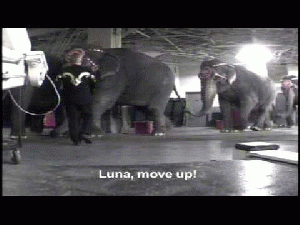We need stories to change the world. There is truth. There is vision. There are values-- They all come out of stories. Stories come first. You don't just come up with a value. It is rooted in stories and or myth, or not to quibble, the key writings of major religions. Those writings are built with stories.
I've seen that your ideas for writing novels could absolutely apply to writing about change and even in writing in terms of coming up with the words for the campaigns and what have you. Have you ever done anything with any of those areas?
Donald: Well no, political writing, speech writing and what not is not my specialty but you mentioned activism, Rob and people may think of fiction novels as entertainment and sometimes that's their primary intent, but I believe that fiction has a broader impact than that. Sales may be relatively small relative to video games, let's say, or the number people who might see a television show on a given night; sell quite a few--many fewer copies of a novel than that. But its influence is disproportionately large, it ripples out through our culture--fiction does, in ways that are maybe hard to quantify, but I think are very real. It's one of the most powerful forms of storytelling because it takes is us so deeply inside fictional characters experiences. Now one of the things I believe, in which you heard me talk about, is that novelists then have a responsibility to do something with their fiction, to say something; to have an impact on people and indeed if you look at successful fiction even entertainment, even commercial fiction, thrillers and women's fiction and things like that, they are the most successful when the author has a point to make, when there's something that the author wants the reader to see or experience or understand. I've talked to a lot of novelists over the years and the most successful ones with any book they've got, they've really got something driving them to tell that particular story; a point, call it a message if you want, but it's something that the author feels is important to say and that's one of the things that I think storytellers need to do and I think that's one of the things that makes novels powerful.Rob: Can you give some examples?
Donald: Yeah, gosh, you got a couple days? There are many, many, many examples like that. Let's take some examples of more entertaining kinds of stories. Gosh, I'm looking across my office at stacks and stacks of books here. Near the top is, Like Water for Elephants, a very popular novel from a couple years ago. Very entertaining book too, very funny at times and yet that book took us deep, deep, deep inside the world of circuses and traveling circuses that's almost forgotten now and told us a wonderful romantic story in the midst of all that. But it's really a story about human struggle, about identity, it's about animals. It has an awful lot of relevance that may not be sitting right there on the surface of the prose but I think it's there underneath and I think it has to be there otherwise contemporary readers wouldn't respond to it. They wouldn't feel what the character's feel. They wouldn't come away with a strong impression of the story. It has to be relevant. It has to speak to our times. It has to say something that we all feel or even better, something that we feel and knew; a respect for elephants. It sounds like a small thing but in that story it's very powerful and gets us to look at the animals in our world in a different way.
Rob: Okay. Pause"
Donald: Your silence may suggest that you think I'm off my rocker here.
Rob: No, what's interesting is we just had some coverage of protesters protesting at the local entertainment center about the Barnum and Bailey Circus (actually, it was Ringling brothers) because of their treatment of elephants. So let's say that a writer was to apply your approaches to the issue of the treatment of elephants in today's circuses.
Donald: Um-hum.
(Note: You can view every article as one long page if you sign up as an Advocate Member, or higher).







